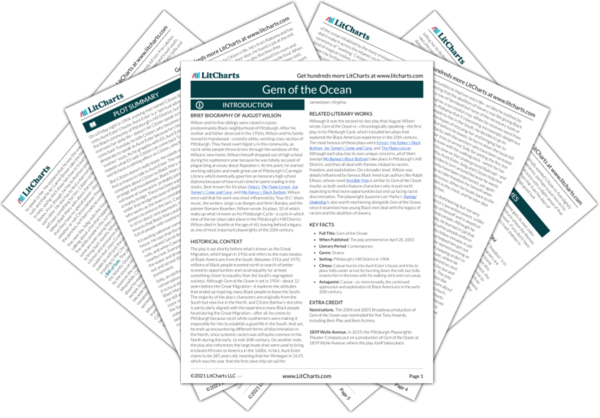Eli’s willingness to help others is on display in this scene, as he wishes he could accompany Solly on his journey south. The reason he can’t go with Solly, though, is that he has already committed himself to helping Aunt Ester. He is, in other words, a selfless person who has no problem with devoting himself to supporting his fellow community members—a mindset that stands in stark contrast to the highly individualistic way that someone like Caesar moves through the world.
